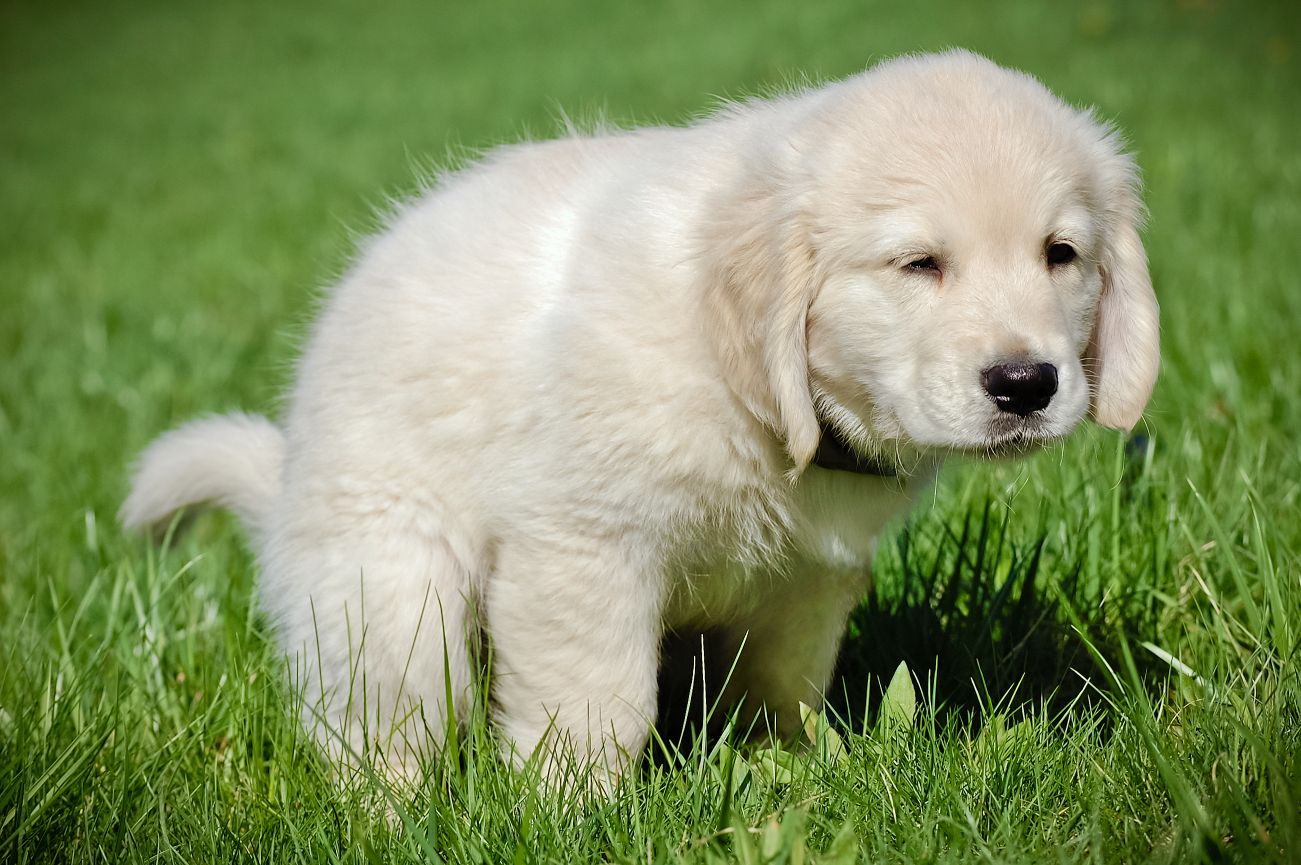Help! My Dog Is Constipated!

When you gotta go, you gotta go… that is, unless you can’t. Constipation is no fun, whether you are a human or a dog. It is only natural to want to help your canine companion when you see they are having trouble, but what is the right way to do so? Bayside Animal Hospital is happy to help get your pup’s digestive health back on track.
Assessing the Situation
One of the biggest secrets among vets is that when people tell us that their pet is constipated, it turns out that almost ¾ of the time their pet is actually having diarrhea!
This isn’t because people aren’t smart enough to know what dog poop looks like. Rather, it is because of the nature of diarrhea in dogs.
Many times, diarrhea in dogs is accompanied by colitis, or inflammation of the colon. This results in the urge to “go” even when there may be little or nothing to come out. This looks like frequent trips outside, posturing to poop, and straining unproductively.
It is important to know this because the last thing you want to do for a dog who is having diarrhea is try to cure their constipation! Watching closely can help you to discern the difference.
Okay, Why Is My Dog Constipated???
If your dog is truly constipated, there can be multiple reasons. Some of the more common reasons a pet may struggle with a bowel movement include:
- Dehydration
- Foreign material in the feces
- Painful defecation such as that seen when anal sacs are very full
- Difficulty posturing to defecate such as that secondary to arthritis
- A physical obstruction such as a large prostate gland
- Dietary change
- Change in routine
- Medication side effect
- Other systemic diseases or injuries
Cats especially may also appear to be constipated when they are struggling to urinate. Pay close attention to try to identify the exact issue.
How to Help
If your pet is experiencing mild constipation, there are a few things that you can try at home. You can help to move things along by:
- Taking your pet for a nice walk
- Increasing hydration (low sodium broth, ice cubes, and canned food all work well to add water)
- Increase the fiber with a tablespoon or two of canned pumpkin or Metamucil as directed
- Use a doggy-friendly probiotic
Sometimes, though, a constipated pet is in need of veterinary attention. Contact us right away if your pet has not defecated in 48-72 hours, is lethargic or painful, stops eating, is vomiting, or you notice redness, swelling, or other abnormalities around the anal area. Puppies should receive attention if they go over 24 hours without a bowel movement.
Constipation is no fun, but we are here to help. Let us know if your pet is having trouble and we will get them relief as soon as possible.


